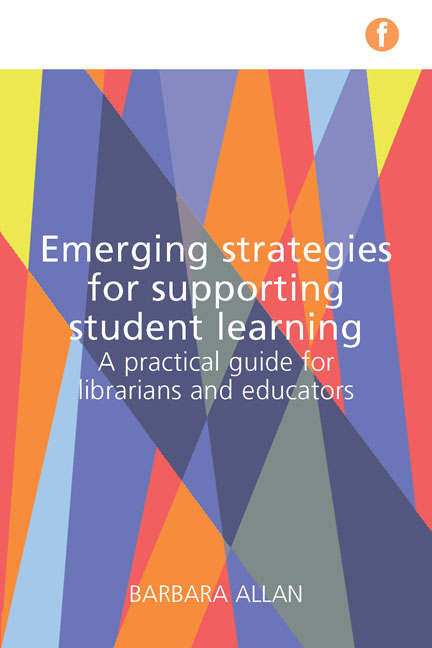Book contents
- Frontmatter
- Contents
- Figures and tables
- Acknowledgements
- 1 Introduction
- 2 Working with students
- 3 Digital literacies
- 4 Employability
- 5 Approaches to learning and teaching
- 6 Learning and teaching activities
- 7 Making it happen
- 8 Designing face-to-face, blended and online courses
- 9 Delivering learning experiences
- 10 Evaluation of learning and teaching activities and courses
- 11 Lifelong professional development
- Index
11 - Lifelong professional development
Published online by Cambridge University Press: 08 June 2018
- Frontmatter
- Contents
- Figures and tables
- Acknowledgements
- 1 Introduction
- 2 Working with students
- 3 Digital literacies
- 4 Employability
- 5 Approaches to learning and teaching
- 6 Learning and teaching activities
- 7 Making it happen
- 8 Designing face-to-face, blended and online courses
- 9 Delivering learning experiences
- 10 Evaluation of learning and teaching activities and courses
- 11 Lifelong professional development
- Index
Summary
Introduction
Chapter 1 outlined how rapid developments affecting higher education are changing the ways in which library and information workers support students’ learning and achievement. The need to maintain and update professional knowledge and skills is vital in order to continue to develop and innovate library and information services and resources, so that they meet the needs of their stakeholders.
This chapter explores different approaches to keeping up to date and developing one's professional profile. It starts by outlining the range of learning and development opportunities available to library and information workers. Many are available in the workplace, through professional organizations and education providers, as well as through independent activities, e.g. social networking. These are considered under the following themes: networking through professional organizations; learning in the workplace; short courses, conferences and workshops; accredited courses; independent learning; and developing online networks. In practice, there is much overlap between these different approaches to keeping up to date. The final sections are concerned with managing individual professional development (short term immediate needs and longer term career planning) and developing a portfolio.
Networking through professional organizations and groups
An important method of keeping up to date and gaining support is through local, regional, national or international library and information professional networks. Professional associations such as the Chartered Institute for Library and Information Professionals (CILIP) in the UK, the American Library Association (ALA) and the Australian Library and Information Association (ALIA) offer a range of services to members, which typically include: giving access to professional journals and other resources; giving access to specialist events, workshops and conferences; professional accreditation; discounted fees for books and events; and other benefits.
Professional associations are likely to provide information, support and guidance for all stages of a career, from advice about professional accredited courses through to support and guidance for senior staff. Their websites give access to a vast array of information and resources, as demonstrated by the following examples.
- Type
- Chapter
- Information
- Emerging Strategies for Supporting Student LearningA Practical Guide for Librarians and Educators, pp. 153 - 170Publisher: FacetPrint publication year: 2016



